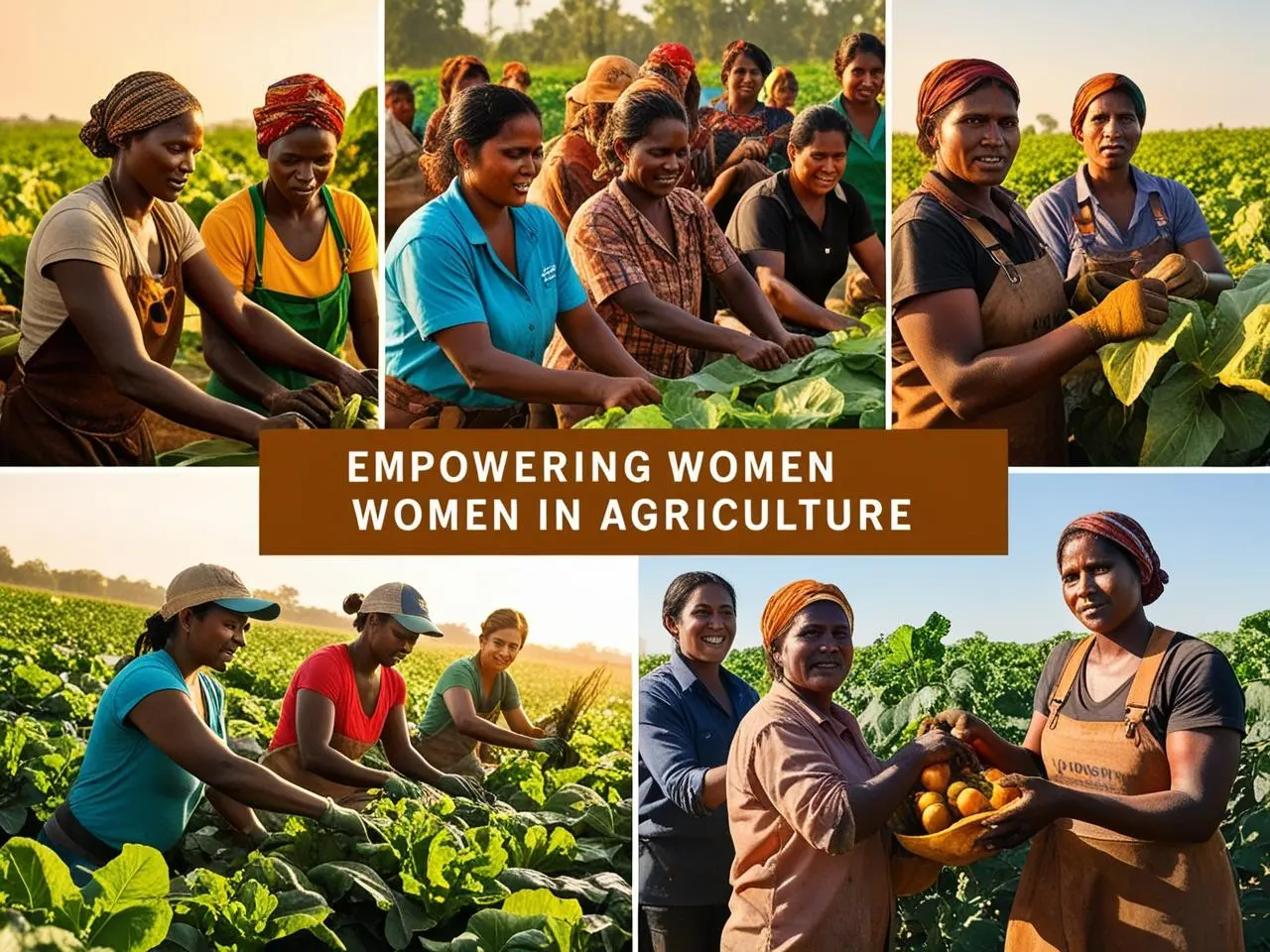Women play a crucial role in agriculture, contributing significantly to food production, processing, and distribution worldwide. Despite their vital contributions, they often face numerous challenges that hinder their full potential in the sector. However, stories of resilience and success highlight their ability to overcome barriers and drive positive change, underscoring the importance of empowering women in agriculture.
Challenges Faced by Women in Agriculture
Limited Access to Resources
Women frequently lack access to land ownership, credit, and agricultural inputs such as seeds, tools, and fertilizers.
Cultural norms and legal restrictions in many regions exacerbate these inequalities, restricting their ability to expand or sustain farming activities.
Gender-Based Discrimination
Women often face systemic biases that limit their participation in decision-making processes within households, communities, and agricultural institutions.
They are frequently excluded from training programs and extension services, which are critical for adopting modern farming techniques.
Workload Disparities
In addition to agricultural responsibilities, women typically shoulder the burden of household chores and caregiving, leaving them with little time to pursue personal or professional growth.
Climate Change Vulnerabilities
Women farmers are disproportionately affected by climate change due to limited access to resources, technology, and information to adapt to changing environmental conditions.
Market Access
Women often struggle to access markets to sell their produce, facing challenges such as lack of transportation, unfavorable market conditions, and inadequate financial literacy.
Success Stories: Women Leading the Way in Agriculture
Entrepreneurial Ventures
In India, women-led cooperatives like the Self-Employed Women’s Association (SEWA) have empowered rural women by providing access to resources, markets, and training. These cooperatives enable women to collectively bargain for better prices and build sustainable livelihoods.
Innovative Farming Practices
In Kenya, women farmers are adopting climate-smart agriculture techniques, such as agroforestry and drip irrigation, to increase productivity and resilience to climate change. Programs like Women in Agriculture Network (WiAN) have been instrumental in providing the training and resources needed for these initiatives.
Leadership in Agribusiness
Women entrepreneurs in agribusiness are driving innovation. For example, in Nigeria, women-led startups like Babban Gona are supporting smallholder farmers by offering affordable inputs, training, and market access, enabling them to increase yields and incomes.
Advocacy and Policy Influence
Organizations like Women Organizing for Change in Agriculture and Natural Resource Management (WOCAN) are amplifying women’s voices in policy discussions, ensuring that gender-sensitive policies are integrated into agricultural development programs.
Community Empowerment
In Latin America, women-led initiatives are revitalizing traditional farming practices, preserving biodiversity, and fostering community development. Their efforts have enhanced food security while also fostering stronger social bonds.
Steps Toward Empowerment
Policy and Legal Reforms
Governments must implement gender-sensitive policies that ensure equal access to land, credit, and agricultural services for women.
Legal reforms are needed to eliminate discriminatory practices and uphold women’s rights in agriculture.
Access to Education and Training
Providing women with agricultural training, financial literacy, and technical skills is critical for empowering them to innovate and thrive in the sector.
Investment in Technology and Infrastructure
Ensuring women have access to modern farming technologies and infrastructure such as irrigation systems and transportation networks can enhance productivity and market access.
Strengthening Cooperatives and Networks
Supporting women-led cooperatives and networks fosters collaboration, resource sharing, and collective bargaining power, enabling women to achieve greater economic independence.
Promoting Gender Equality in Leadership
Encouraging women’s participation in leadership roles within agricultural organizations and policymaking bodies can ensure their voices are heard and their needs addressed.
Conclusion
Empowering women in agriculture is not only a matter of gender equality but also a pathway to global food security and sustainable development. While challenges persist, the success stories of women breaking barriers in agriculture demonstrate their resilience and potential to transform the sector. By addressing inequalities and providing the necessary support, we can unlock the full potential of women in agriculture, fostering a more inclusive and productive future.

